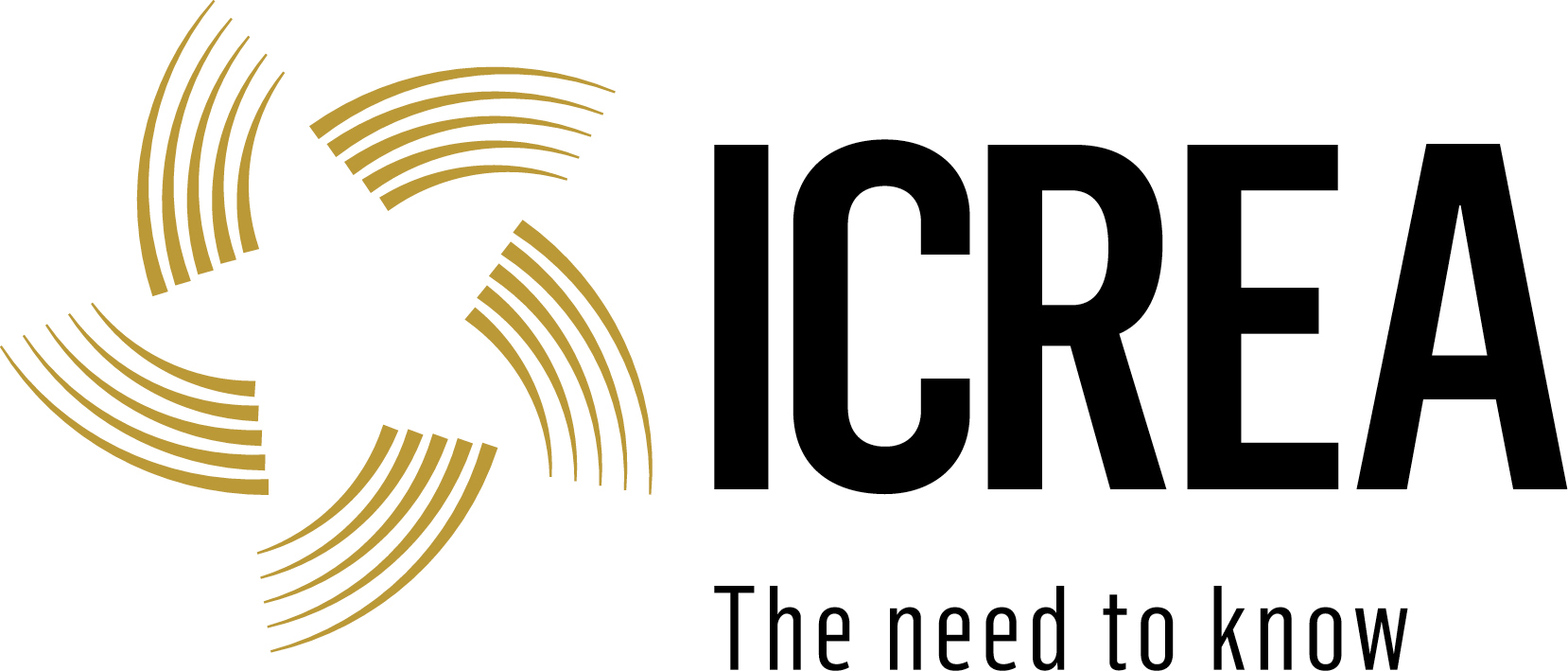This past July, the Lindau Nobel Laureate Meeting (LINO25) was held in the German city of Lindau. The event is an annual gathering of Nobel Prize-winning scientists and showcases the next generation of young scientists from around the world. Since its founding in 1951, the Lindau Nobel Laureate Meetings have represented a unique international scientific forum. The annual meetings provide an opportunity to exchange experiences between different generations, cultures, and disciplines. Over the course of one week, 600 master’s, doctoral, and postdoctoral students from all over the world have the opportunity to meet and interact with between 30 and 40 Nobel Laureates from disciplines such as Chemistry, Medicine, Physics, and Economics.
"To continue on this path as a Lindau Alumni is an honour and I hope that all the ideas that have come from it will become a reality"
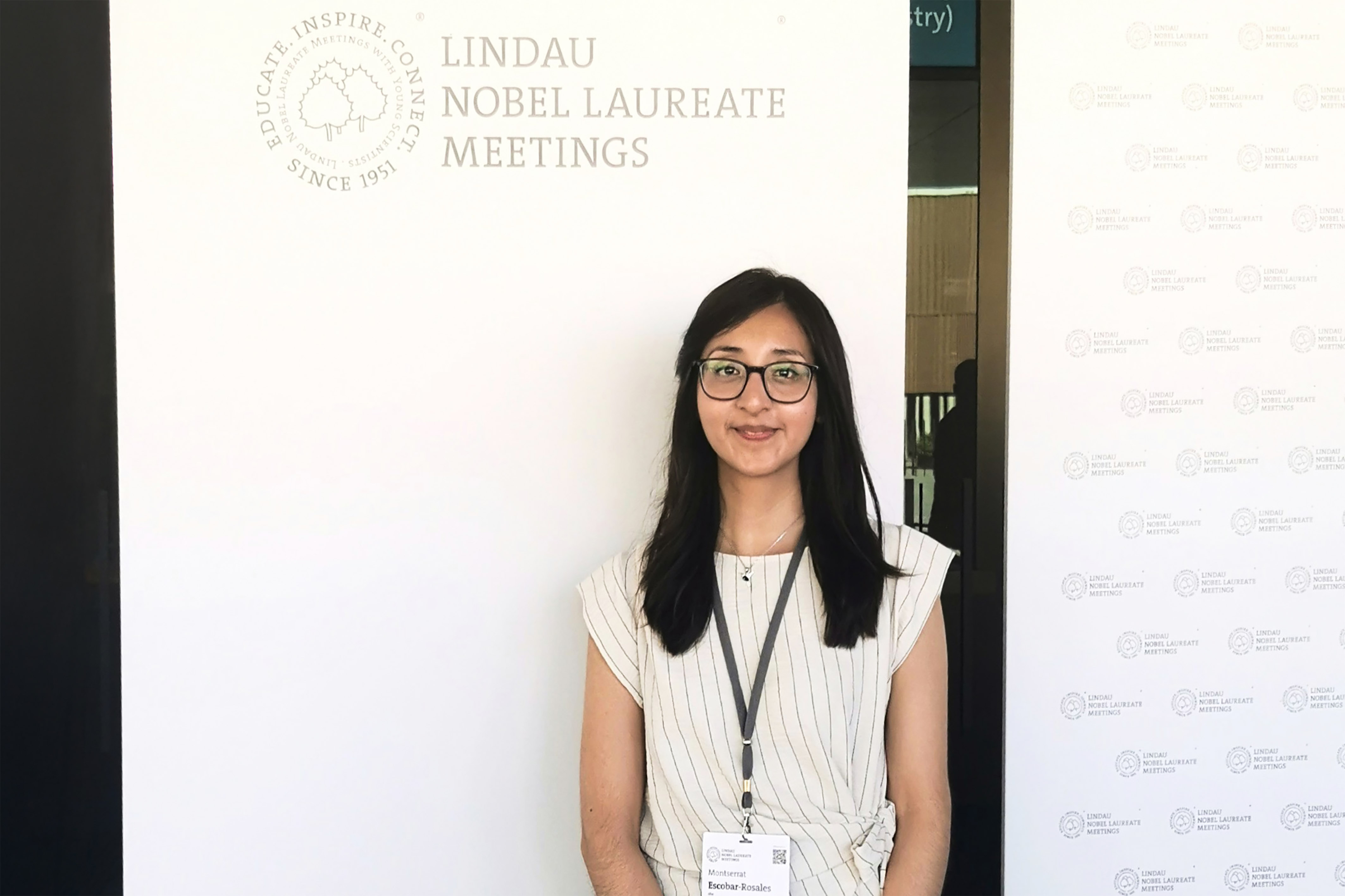
This was the 74th edition of the event, this year focused on Chemistry. The objective of the meetings forms part of the community’s mission to “bring Science to Society to Educate, Inspire, and Connect” as the organization’s motto states.
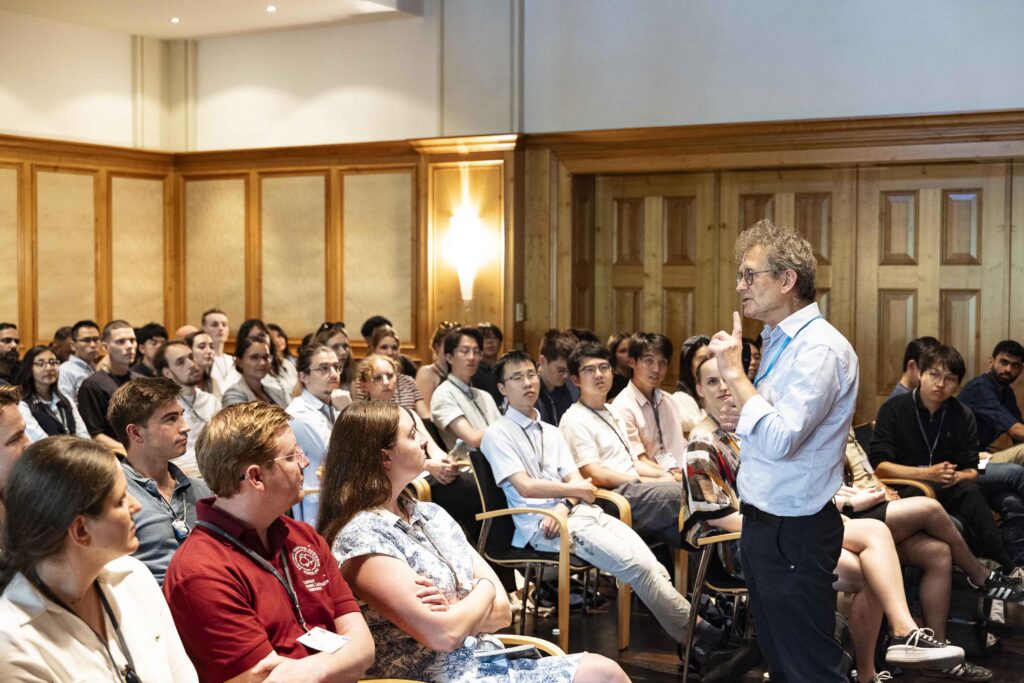
To participate in these meetings, students are selected according to strict criteria related to their excellent academic trajectories: the number of publications they have made, the scholarships they have obtained, their area of research, and so on.
In this year’s edition for 2025, Montserrat Escobar Rosales, a predoctoral researcher with the Department of Bioengineering at the IQS School of Engineering, was one of the 600 students selected to attend the gathering. Montserrat is carrying out her doctoral thesis within the ChemSynBio laboratory under the supervision of Dr Benjamí Oller-Salvia and Dr Cristina Díaz Perlas.
Montserrat, what does attending the Lindau meeting mean to you?
It has been a dream come true for me. As a young researcher, being able to meet all these Nobel Laureates has been really motivating and has given me a lot of confidence in everything I have done so far and in what remains to be done! In this year’s edition, 33 Nobel Laureates in Chemistry participated. Being able to chat with them and exchange and share scientific knowledge was all an extraordinary experience! They turned out to be very approachable people.
In addition, it made it possible for me to meet many very talented young scientists from all around the world. Their motivation and ambition, as well as the passion they share when explaining their respective areas of research, is something that I really identified with. We were only together for a week, but it was quite intense. Having the opportunity to interact at the hotel, during meals, at social activities in the afternoons, and even on a cruise on beautiful Lake Constance really promoted the exchange of ideas, not only professionally, but also personally.
I’m certain that everyone who had the opportunity to attend will never forget the new faces, the conversations between scientific sessions, and even the sunsets back at the hotel. In one way or another, every participant contributed to create a great bubble full of peace, inspiration, and widespread freedom of expression, all of which have given me more energy to continue pursuing my goals. Without a doubt, continuing on this path as a Lindau Alumni is an honour and I hope that, over time, all those crazy ideas that came from drinking a beer or sharing a meal will become a reality through collaborations in our respective countries.
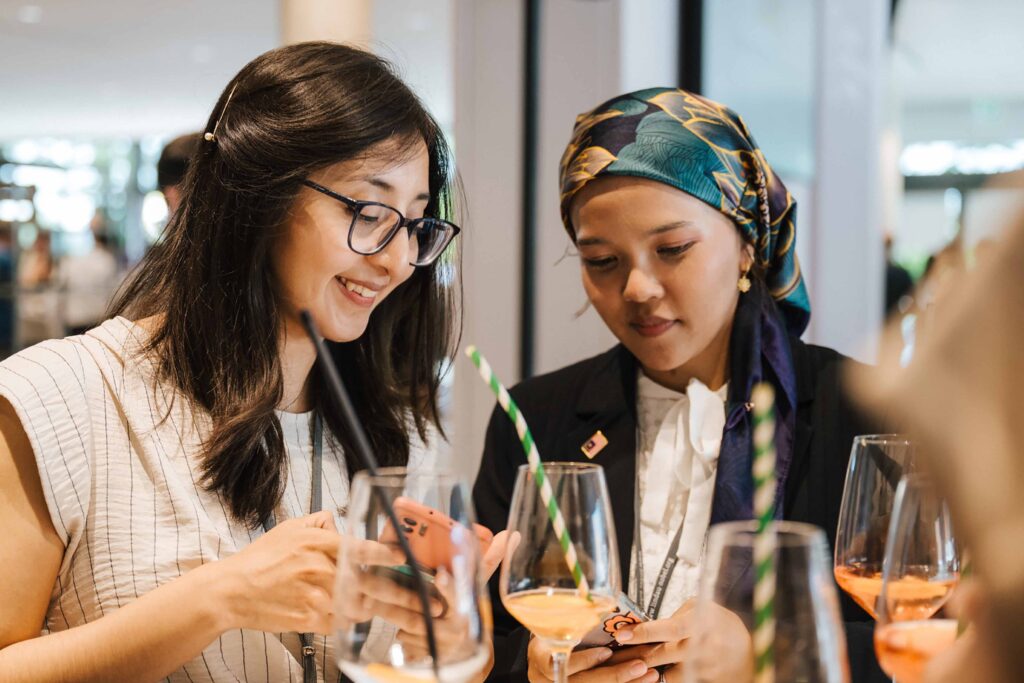
How did you get a spot in LINO25?
There are two ways to submit an application to attend the Lindau meetings. The first way is being nominated by any of the associated Academic Institutions. The second is through an open application on the website, which is only possible if there is no associated academic institution in the country from which the application is made.
Here in Spain, an application can be made through ICREA. They are the ones who receive the applications, choose the candidates, and present them to the Lindau committee, which compiles applications from all over the world and carries out the final selection. My thesis supervisor, Dr Benjamí Oller, provided me with the contact of Prof. Xavier Salvatella from the IRB, and an ICREA Researcher, to whom I am very grateful for agreeing to meet and interview me. Thanks to his vote of confidence, I was able to submit my application to ICREA, which subsequently selected my candidacy.
Thus began the competition to attend, which was large and featured really tough selection criteria. It wasn’t easy, but I made it and I am very grateful to everyone who trusted me, for the great opportunity they have given me, and to ICREA for also covering all the expenses to attend this event.
“I am very grateful to everyone who trusted me and for the great opportunity they have given me”
With 600 participants, how were the meetings and talks organized?
The scientific programme is highly varied and aims to promote dialogue and launch the exchange of knowledge, ideas, and experiences. This year, all the activities revolved around two very interesting topics: Artificial Intelligence and Sustainability in Chemistry.
There are activities that are accessible only by invitation and others that are open to all participants. As far as the first activities were concerned, everyone had to get an invitation prior to the meeting. Spots are competed for in the “Next Gen Science Sessions,” or walks or meals with a Nobel Prize winner, the morning yoga sessions, the breakfasts and dinners organized by entities associated with the Lindau Committee, and the workshops on scientific communication.
Open activities included lectures, which represented a unique opportunity to receive a “masterclass” from the Nobel Laureates on the methodologies and discoveries they have developed as well as their impact on various disciplines.
There were also panel discussions and other formats such as the “Agora Talks” and the “Open Exchanges,” which provided the perfect opportunity to address controversial issues, ask questions, and receive feedback not only from the Nobel Laureates, but also from experts on their subject from all over the world. The degree of approachability, informality, and openness that characterized the atmosphere of these discussions made them my favourites.
Upon arrival, all guests receive a special package with a personalized agenda, among other things. In this way, each participant knew exactly where to go and this allowed us to plan in advance to make the most of each interaction and each experience.
All activities are organized in restaurants, theatres, forums, and parks located on different parts of the islands of Lindau and Mainau, which added a dynamic, innovative touch to bring a brilliantly planned event to a close.
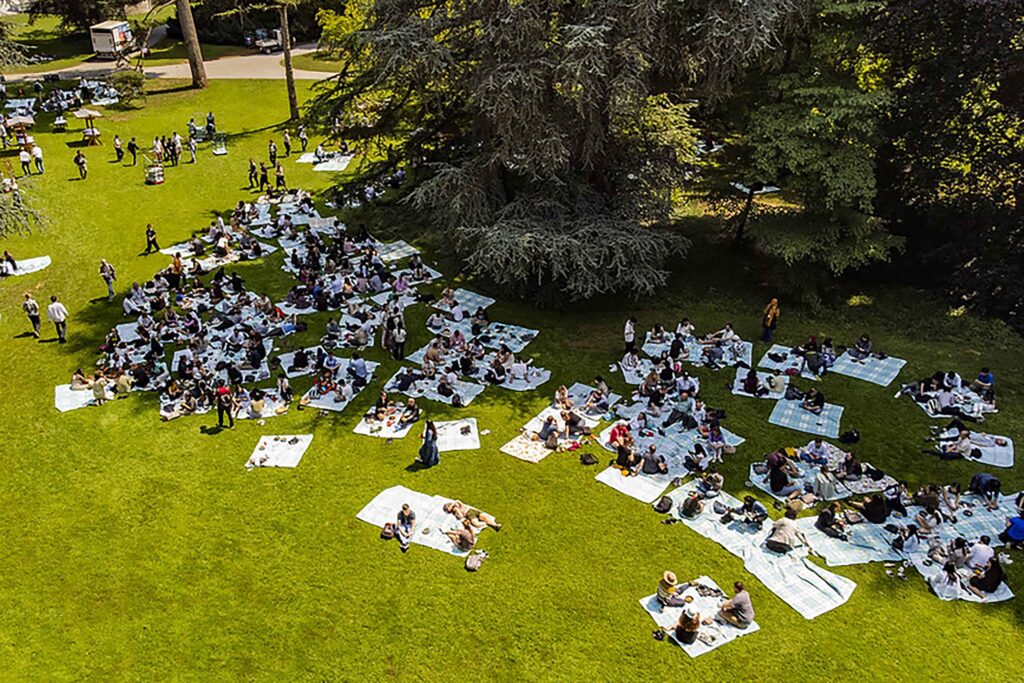
What stands out about all the experiences you had?
I was able to meet Prof. Sir Gregory P. Winter, 2018 Nobel Laureate in Chemistry for the application of the Phage Display technique for peptides and antibodies. I was really excited to meet him as I appreciate his vision as a scientist and entrepreneur and I have admired his career for quite some time. I was able to ask him some questions that have enriched my perspective on this topic, which is particularly significant for me since it is one of the methodologies that I have had the opportunity to explore throughout my doctoral thesis thanks to the experience of my co-supervisor, Dr Cristina Díaz Perlas.
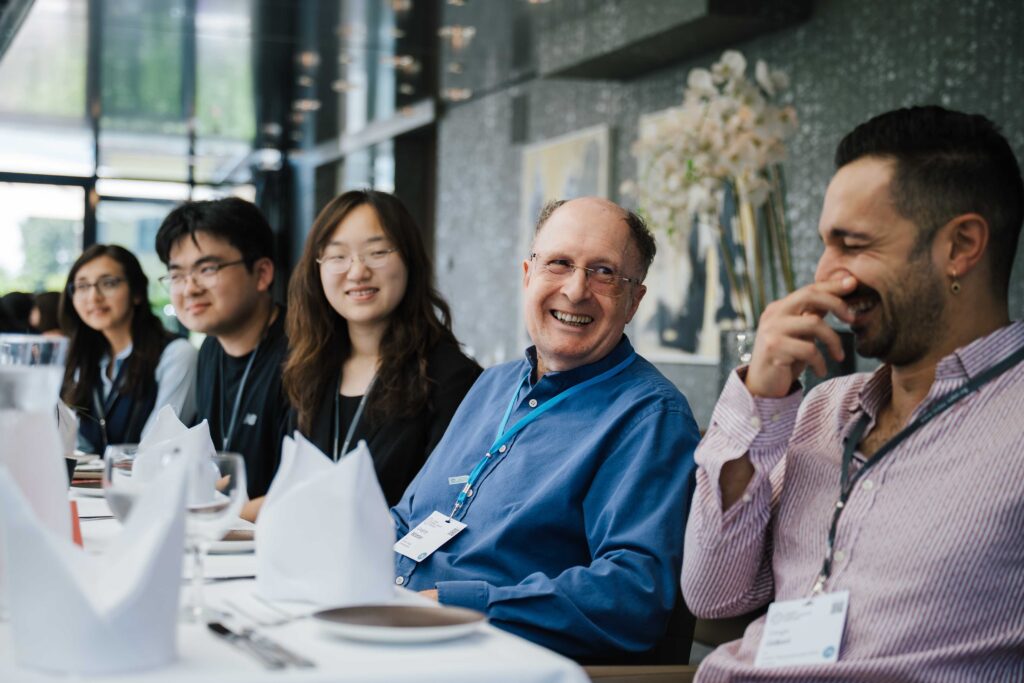
Another incredible opportunity for me was meeting Dr John M. Jumper, director of Google Deep Mind and 2024 Nobel Prize in Chemistry for his contributions to AI in the prediction of protein structures, with the creation of AlphaFold. His contribution, together with the contribution by Prof. David Baker, in the development of methods to design de novo proteins has considerably influenced the course of my doctoral thesis and is one of the approaches that we are actively exploring in the ChemSynBio group.
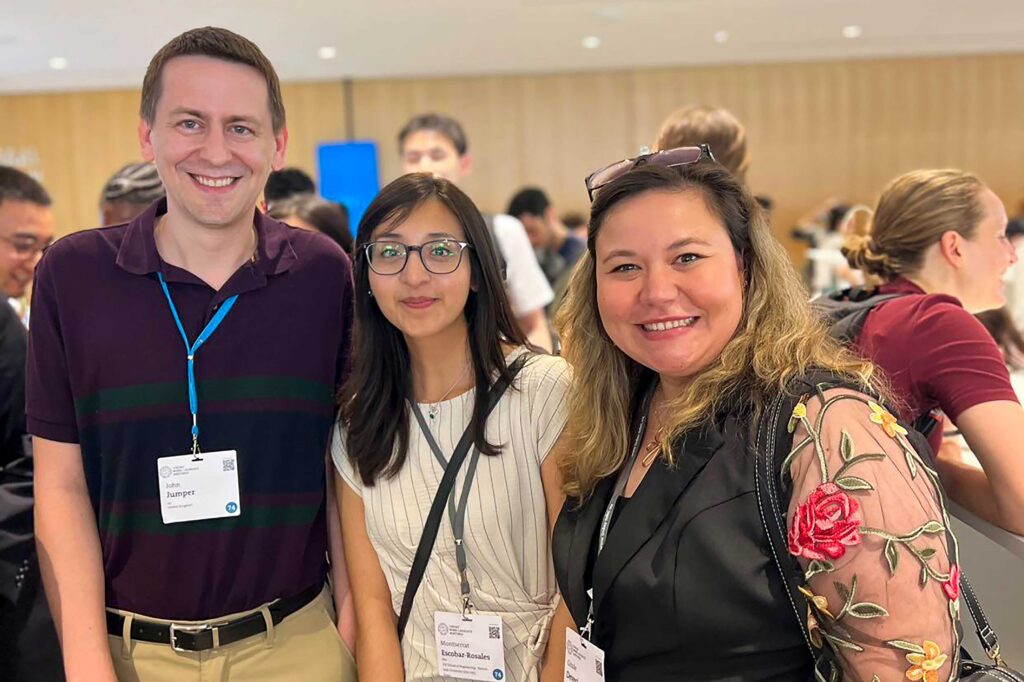
Additionally, I would highlight the meetings with Dr Morten Meldal, 2022 Nobel Prize in Chemistry for the development of click chemistry and bioorthogonal chemistry, Dr Ben L. Feringa, 2016 Nobel Prize in Chemistry for the design and synthesis of molecular machines, and Dr David W. C. MacMillan, 2021 Nobel Prize in Chemistry for the development of asymmetric organocatalysis. Although the topics ranged far from my area of research, their ideas and recommendations were very inspiring to provide novel approaches to my future research.
“We are at a turning point in how biotherapies are designed and produced”
I believe that, in part due to AI and specifically in my area of interest, we are at a turning point in how biotherapies are designed and produced. These are very exciting times to be a woman in science. Of course, it’s only the beginning, but I can’t wait to see the progress that’s coming and to somehow form part of it.











